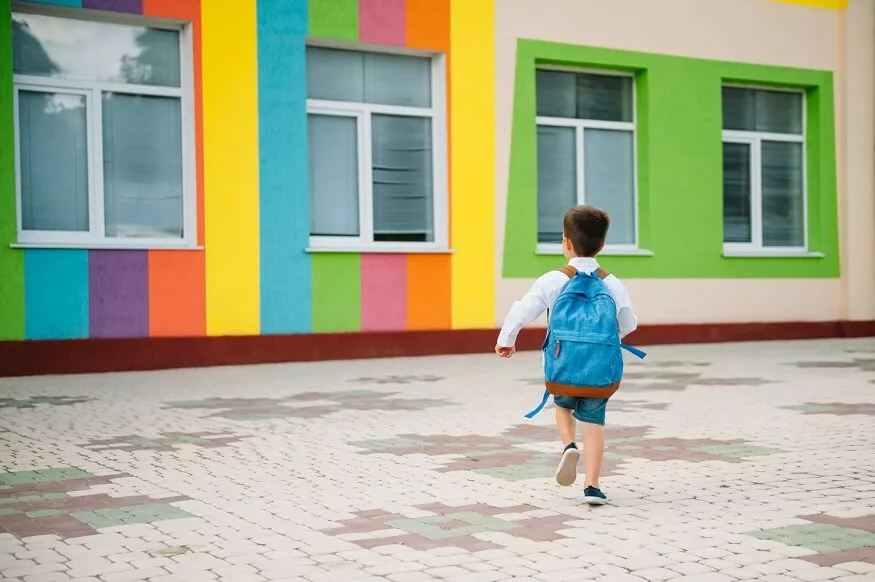As parents, the journey involves not just preparing your child but also arming yourself with the right tools to navigate this new terrain. In this guide, we’ll explore what your kids should know before embarking on the preschool adventure, offering a comprehensive checklist for parents and practical tips for ensuring a smooth transition.
Understanding Preschool Readiness
Preschool readiness involves social, emotional, and cognitive skills. Independence, communication, curiosity, and basic self-help skills prepare children for school success.
Social and Emotional Readiness
- Independence: Encouraging independence is key. Teach your child to manage basic tasks like using the toilet, washing hands, and putting on simple clothing. This fosters a sense of autonomy that will serve them well in the preschool setting.
- Social Skills: Social interaction is at the heart of preschool. Encourage your child to play with others, share toys, and take turns. Simple games and play dates can help develop the social skills necessary for thriving in a group setting.
- Expressing Needs: Help your child articulate their needs and feelings. Encourage them to use words to express themselves, fostering effective communication that will be invaluable in the preschool environment.
Basic Cognitive Skills
- Recognising Shapes and Colours: Basic cognitive skills include recognising common shapes and colour Engage in fun activities that involve identifying colours and shapes, making learning an enjoyable experience.
- Counting and Numbers: Introduce counting through everyday activities like counting fingers, toys, or steps. Basic numerical awareness lays the groundwork for more advanced mathematical concepts.
- Fine Motor Skills: Activities that enhance fine motor skills, such as drawing, cutting, and stacking blocks, prepare your child for the tasks they’ll encounter in preschool, like holding pencils and using scissors.
Language Development
- Listening and Following Instructions: Cultivate listening skills by reading stories together and giving simple instructions. The ability to follow directions is crucial in a structured learning environment.
- Basic Vocabulary: Build your child’s vocabulary by exposing them to a variety of words through books, conversations, and everyday activities. A robust vocabulary is the foundation for effective communication.
- Storytelling and Sequencing: Encourage storytelling, helping your child understand and express thoughts sequentially. This aids in developing narrative skills, which are often emphasised in early education.
Also Read: Starting Handwriting For Preschoolers: What’s Normal, What’s Not
Practical Tips for Preparing Your Child for Preschool
Here are some tips to prepare your child for preschool:
Visit the Preschool Together
- Orientation Visits: Many preschools offer orientation visits before the official start. Take advantage of these opportunities to familiarise your child with the environment, meet teachers, and explore the classrooms.
- Establish a Routine: Establishing a daily routine helps create a sense of predictability for your child. This routine can mirror aspects of the preschool schedule, making the transition smoother.
Promote Independence
- Encourage Self-Help Skills: Foster independence by allowing your child to do simple tasks like putting on shoes, zipping up a jacket, or pouring water into a cup. These skills empower them and boost confidence.
- Practice Separation: If your child hasn’t spent much time away from you, gradually introduce short periods of separation. This could involve playdates at a friend’s house or leaving them with a trusted caregiver for brief intervals.
Cultivate a Love for Learning
- Read Together: Reading together is a powerful way to cultivate a love for learning. Choose books that explore themes of friendship, sharing, and the excitement of starting school.
- Learning Through Play: Engage in activities that promote learning through play. Games that involve counting, sorting, or matching help build foundational skills in a fun and interactive manner.
Build Positive Associations with School
- Positive Talk About Preschool: Speak positively about the upcoming preschool experience. Share stories about the fun activities they’ll do, the friends they’ll make, and the exciting things they’ll learn.
- Create a Connection to the School: If possible, visit the school playground or attend events hosted by the preschool. Creating a connection to the school before the official start can alleviate anxiety.
Open Communication Channels
- Talk About Feelings: Encourage your child to express their feelings about starting preschool. Discuss any concerns they may have and validate their emotions.
- Communicate with Teachers: Establish open communication with your child’s future teachers. Share insights about your child’s personality, likes, and dislikes to help create a supportive learning environment.
Also Read: Benefits of Mind Mapping for Learning and Creativity For Preschoolers
The Parent’s Preschool Checklist: A Holistic Approach
- Immunisations: Ensure your child’s vaccinations are up-to-date. Many preschools have specific immunisation requirements to maintain a healthy environment. Schedule a health check-up to ensure your child is in good health. Communicate any medical concerns or conditions to the preschool staff.
- Label Personal Items: Label your child’s belongings, including their backpack, lunchbox, and spare clothes. This helps prevent items from getting lost and promotes responsibility.
- Create a Routine: Establish a morning routine that allows sufficient time for getting ready. A well-paced morning routine minimises stress and sets a positive tone for the day.
- Acknowledge Emotions: Acknowledge any anxieties or worries your child might have. Reassure them that it’s okay to feel a mix of emotions and that starting preschool is a positive step.
- Create a Transition Object: Some children find comfort in having a small, familiar item with them. This could be a special toy or a family photo tucked into their backpack.
- Adjust Sleep Patterns: If your child’s current sleep schedule doesn’t align with the preschool timetable, gradually adjust bedtime and wake-up times to ensure they are well-rested.
- Practice Lunchtime Skills: Familiarise your child with the idea of eating from a lunchbox and encourage them to try opening and closing containers independently.
- Celebrate Achievements: Acknowledge and celebrate small achievements. This could be as simple as putting on their shoes or completing a puzzle. Positive reinforcement builds confidence.
- Be Present: In the days leading up to the start of preschool, be present for your child. Spend quality time together, engage in their favourite activities, and create positive memories.
Also Read: Name Writing Activities for Preschoolers And It’s Benefits
By being attuned to your child’s needs, preparing them holistically, and maintaining open communication with both your child and the preschool staff, you pave the way for a positive and enriching early learning experience. As your child steps into the colourful world of EuroSchool, they do so not just with a backpack but with a heart filled with curiosity and the resilience nurtured at home.









